We are all wrong about millionaires.
Most of us grow up believing that a millionaire lives in a jaw-dropping mansion, with three sports cars, and closets packed with expensive designer clothing.
And that is wrong, wrong, wrong!
The Millionaire Next Door was written after the authors conducted many studies and hundreds of interviews on the wealthy. When they began the project, the authors were also wrong, believing that millionaires in real life look like we see them on TV. So the first time they invited several millionaires to be interviewed, they prepared caviar and wine for their rich guests.
Then the millionaires actually arrived. Shockingly, they were driving used domestic cars, wearing boring grey suits, and asking for sandwiches and beer! These were not the millionaires that get paraded in the media, wearing Guccis and driving Lamborghinis. These were the real-life typical millionaires that we never really notice. They are often older family men living low-profile middle-class lifestyles.
These were millionaires… hiding right next door to you and me.
So in this summary of the ever-popular book The Millionaire Next Door, we’ll get to understand:
- The truth about millionaires,
- How people really get rich, and
- What we can learn from them to build wealth and financial independence.
Sound good? Then let’s go!
About the authors
Thomas J. Stanley and William D. Danko (official website) spent 20 years studying wealthy people. From 1973 to 1996, they conducted many studies, with up to 1000 respondents answering 200 questions each. They also interviewed 500 millionaires personally before writing this book. They are respected experts in their field, having done research for the New York Stock Exchange and been published by the American Marketing Association.
💰 1. Master the Wealth Formula: True wealth comes not just from what you earn, but investing wisely to grow it
Thanks to pop culture, many of us have been fed the myth that to be a millionaire, we must become a famous athlete, win the lottery, or have a rich dad. Or at least we need to be some superhero-level CEO, surgeon or lawyer.
Right?
Nope, absolutely not—According to the studies done by Stanley and Danko.
Most millionaires are older men who tend to be self-employed, running a business that is blue-collar and boring. (Over 80% of millionaires in America are first-generation rich.) They make a somewhat higher income than average, but the main reason they are wealthy is because of their lifestyle of self-discipline. They save a large portion (15% or more) of their income so they can invest it. Most other people, whether high or low income, simply consume all their income with extra spending.
A quick note: Remember this book was published in 1996. If we account for inflation, those millionaires they studied would have a minimum of $1,860,000 today! If you don’t know, inflation is the name (Investopedia.com) for how money tends to become worth less over time.
One of the most important messages in this book is that a high income is not enough. To highlight this point, the authors discuss two special groups they discovered in their research:
- PAWs, or “Prodigious Accumulators of Wealth” are exceptionally good at saving money and growing wealth. They have a net worth far higher than most people with a similar income. They deeply desire financial independence.
- UAWs, or “Under Accumulators of Wealth” are much worse than average at saving money, so they end up with a much lower net worth than other people with a similar income. A surprising finding is that UAWs are often well-educated professionals making a high income, but they spend it all to maintain a lifestyle that appears high-status.
So, how can you know whether you are on track to become a PAW or UAW? The authors came up with a simple formula:
The Millionaire Next Door Formula is to multiply your age by your income, then divide by 10. The end result is what your net worth should be. If you’ve accumulated double that number in wealth, then you’re a PAW. If you have less than half of that, then you’re a UAW. (Sorry!)
The #1 most-recommended book on money and investing may be Rich Dad Poor Dad by Robert Kiyosaki. It tells the story of what Kiyosaki learned from his “Rich Dad,” which was really his friend’s father and a wealthy entrepreneur, who ran a chain of stores in Hawaii.
The most important first lesson in that book from Rich Dad is, “The poor and middle class work for money. The rich have money work for them.” What that means is wealthy people use their money to buy assets—things that make them money like stocks, bonds, certain real estate, private businesses, etc. Non-wealthy people, on the other hand, buy liabilities—things that cost money and shrink in value.
In this book, we can see the exact same difference playing out between PAWs and UAWs—PAWs save their income to invest in assets, which makes them very wealthy over time. UAWs spend their income on things that cost them money, like the most expensive car that they can afford the payments on.
PAWs, or ‘Prodigious Accumulators of Wealth’ are exceptionally good at saving their income (15% or more of it), which they invest to become wealthy. On the other hand, UAWs are “Under Accumulators…” They could make a very high income too, but they spend it all to appear high-status, and as a result they don’t accumulate much true wealth.
🐷 2. Embrace Frugality: Financial planning and saving money is essential for creating your foundation for investment and future wealth
Because finance tends to be a boring abstract subject, the authors of The Millionaire Fastlane use metaphors to make it more concrete, so they relate finance to sports and gardening:
- If we imagine getting rich as a game, then making a high income is like “playing offense,” and saving a large portion of that income is like “playing defense.” Both parts of the game are absolutely essential to winning.
- We can also imagine the money we save to be like seeds, and when we invest those seeds they eventually grow into a strong tree of wealth and financial independence that provides us with endless shelter and security.
Behind these wonderful metaphors, there’s a simple message: you gotta save money bro.
There is no way around the reality: People generally become millionaires by saving at least 15% of their pretax income, and investing it.
Millionaires turn out to be surprisingly frugal, according to the studies done by Stanley and Danko. They often buy cars used, shop for discounts, and clip coupons. Not because they need to, but because they feel a satisfaction minimizing financial waste. They found the typical or median millionaire has NEVER spent more than $399 for a suit.
Millionaires have 3 different approaches to saving and investing:
- 2/3 of millionaires plan their household budget, keeping track of spending by category, and setting financial goal for each week, month, and year. It’s not fun for them either, but they desire financial independence enough to endure the boredom. The PAWs studied in this book spend over 8 hours per month on financial planning, twice the time as UAWs.
- Another large portion create “artificial scarcity.” That means they first invest 15-20% of their income, then live on the rest. Many financial experts call this strategy “paying yourself first.”
- The rest make so much money it doesn’t matter. Their income is high enough they don’t really need to keep track of spending, yet they still invest enough money to become wealthy.
In mainstream culture, a wealthy AND frugal person is confusing at best, and malicious at worst. We’ve all seen the movies with the wealthy old man greedily counting his gold coins—whether it’s Scrooge McDuck or Mr. Burns. (tvtropes.org) And on the other hand, we are bombarded with commercials that encourage us to “indulge yourself,” “live for today,” and buy that new car we can’t really afford for just 84 monthly payments… With these kinds of media messages, it is no wonder we live today in a society that is hyper-consumerist.
But I believe we can have a much more positive relationship with money, by following the advice in a book called Your Money or Your Life. The greatest idea in that book is “Money is life energy.” That means when we work, we are trading some hours of our life energy for money. So when we spend money, we are really trading our very life energy for goods and services.
Then doesn’t it make sense to take care of our life energy, instead of wasting it? Shouldn’t we all treat our finite, limited life energy with care and consciousness, rather than impulsive spending? Being frugal is spending money in the directions that really make our life better, rather than wasting it through thoughtlessness and societal pressure. And that doesn’t change whether we are worth $12 or $12 million.
Millionaires and PAWs tend to be surprisingly frugal. Most of them spend over 8 hours a month on financial planning and creating a household budget. Some follow a “pay yourself first” strategy of putting aside money for investing first, then spending what’s left.
🏎️ 3. Avoid Status Traps: One of the biggest obstacles to wealth is the temptation to live a high-status lifestyle
If you hear the words “millionaire lifestyle,” what do you imagine? Probably giant mansions, super yachts, and diamond watches, right? That’s the image we’ve been fed for decades by—yet again—pop culture.
The Millionaire Next Door has found that lifestyle is a myth. In fact, the authors discovered that kind of conspicuous consumption is more often a sign of a LACK of real wealth. Because if someone’s income is going towards Porsches and Rolexes, then guess what it’s NOT going towards? Stocks, bonds, and other investments, where it could have grown into real long-term wealth.
In fact, many “under accumulators of wealth” are well-educated professionals with a high income. such as doctors. For example, the authors found 2/3rds of doctors qualify as UAWs, despite making an average income over $140,000/year! They interviewed one surgeon making over $700,000 per year, but worried about his family’s financial future. Because no matter how high one’s income, it will always require self-discipline to avoid spending all one’s money on expensive cars, fashion, and vacations.
Doctors, lawyers, executives, and other high status professionals feel a social pressure to live a luxury lifestyle “in line” with their occupation. If they don’t, then people feel something’s wrong, including potential clients!
Business owners tend to accumulate more wealth because they are free of that social pressure to consume, consume, consume. If someone is a blue-collar entrepreneur, then nobody cares that they can drive a 10-year-old pickup truck, live in a working-class neighbourhood, and wear old jeans every day.
(Entrepreneurs also have more ups and downs in their income over their lifetime than a typical employee, and they know they need to save more for the inevitable down times. That is another important factor. I can tell you that in my short decade of entrepreneurship, there have been years when my income was cut in half, and other years when it doubled or tripled. It’s a real roller coaster!)
The prototypical “blue collar billionaire” was definitely Sam Walton, the founder of Walmart. He began Walmart with one small store in Arkansas, and grew it into the largest retail company in the world.
Sam was always super-frugal, even stopping to pick up coins on the ground. When he became a billionaire, and the richest person in the world, his lifestyle didn’t change much. For example, Sam drove the same old pickup truck he always had. Why? Because he loved hunting and his muddy dogs could easily ride in the back. That’s not something you want to do with a Rolls Royce!
Many people find that confusing. The average person imagines winning the lottery and buying their dream house, sports car, etc. But Sam viewed the situation very differently. He would never allow wealth to distort his core values. Walmart had become such an efficient business machine because of his frugal values, and Sam was not going to throw that away just because he’d been lucky to reach success.
Many UAWs are actually highly educated and highly paid professionals. They fall into a trap of spending more and more money to maintain a “high status” public image. On the other hand, many PAWs are blue-collar business owners free from that social pressure, and they pour most of their income into investments.
🌱 4. Acquire Assets: Millionaires grow wealth effectively by looking beyond their income and accumulating financial assets
This next part of The Millionaire Fast Lane is absolute gold. If there was a “secret” to becoming wealthy, then here it is…
You see, most people think that you get rich with a high income. Again, pop culture feeds us images of movie stars, music artists, and pro athletes making millions of dollars of per movie or whatever. So we get the belief that people get rich through a high income.
And that is (mostly) wrong!
Because when you have a high income, then you have to pay high taxes on that income. In my country of Canada, the top tax income rate is over 50% right now. If you’re living in some parts of Europe, then yours may be even higher. For a high-income person, taxes are their single biggest yearly expense.
That’s why rich people who are smart actually try to decrease their annual income, their personal cash flow. How? By growing their wealth within assets like stocks, bonds, real estate, businesses, etc.
An asset is something that grows/appreciates in value or provides you an income. For example, investors buy stocks with the expectation the stock will grow in value, so they can later sell it for more money. Or someone buys an apartment building because they want the income from the monthly rent. Again I have to mention the book Rich Dad Poor Dad, which talks a lot about assets. Kiyosaki’s big message is that rich people buy assets that make them money, rather than working for a living.
And here’s the most important part: When the value of an asset that you own grows, then your wealth is growing, without you needing to pay as much taxes right away. It’s only later if you decide to sell your asset, that you’ll need to pay tax.
The opposite of an asset is a liability. A liability loses value or depreciates over time, and often costs money to maintain. For example, a new car quickly loses thousands of dollars of its value in the first 3 years, and requires money for fuel, maintenance, insurance, etc. UAWs struggle to build real wealth simply because they buy a lot of liabilities rather than assets.
One of the best introductions to the basics of investing is a book called The Millionaire Teacher by Andrew Hallam. In simple English, he explains topics like stocks, bonds, mutual funds, compound interest, and more. The author was actually a school teacher in Canada, who had to learn all about investing to secure his own financial future.
In short, what Andrew discovered is that for most people, the best investing strategy is to NOT be an active investor. We usually make more money buying a stock and then holding onto it for a long time, saving a lot of money on trading fees. Even better, we don’t even need to pick individual stocks. Instead, we should buy an index fund, which is like a pre-packaged collection of the most important stocks.
A high income leads to sky-high tax bills. Because of this, smart people grow wealth faster through buying assets, which will grow in value, without that growth being taxed right away. An asset is something that appreciates or provides income, like stocks, bonds, real estate, etc. The opposite is a liability, which bleeds money every year, like an expensive car.
📊 5. Consider Self-Employment: Many millionaires are risk-taking entrepreneurs, but encourage their kids to become highly-educated professionals
2/3 of millionaires studied in this book were business owners. These were entrepreneurs who took great risks and worked crazy long hours to become first generation rich. Their business is usually boring or blue collar, and a surprising percentage are immigrants.
Does that mean we should all drop our careers and start a business?
Probably not. The authors of The Millionaire Next Door advise most people NOT to become entrepreneurs, despite the results of their studies. Because most business owners never make much money.
In fact, most of the PAW millionaires studied in this book tell their own kids NOT to become an entrepreneur! They understand better than anyone how much hard work and good luck was required for their success. And we have no control over luck.
Instead, millionaires generally advise their kids to get a good education, so they can become a high-income professional like a doctor, lawyer, engineer, dentists, accountant, etc. Many of those professionals can become self-employed with their own office, and they will earn a dependable high income.
The authors of this book add there’s a big opportunity being a professional who serves wealthy clients. The number of millionaire households is expected to double in a decade, to 5.6% of all households. And all those wealthy people need trusted advisors to help them manage their estate, taxes, health, businesses, etc. They pay lots of money to get the best lawyers, accountants, or surgeons.
Now, maybe you’re still excited to be an entrepreneur, like me. If that’s true, then you’d probably love the book Shoe Dog, which gives an inside look at growing a company from nothing. The biggest sports clothing company in the world is Nike, and it was founded by Phil Knight, an average college kid from Oregon who simply loved running. In his book, Phil explains the heart-pounding risks he took along his own journey of entrepreneurship, with failure always seeming to be around the corner:
“Starting my own business was the only thing that made life’s other risks—marriage, Vegas, alligator wrestling—seem like sure things. But my hope was that when I failed, if I failed, I’d fail quickly, so I’d have enough time, enough years, to implement all the hard-won lessons.”
While business owners make up 2/3 of millionaires studied, entrepreneurship is very hard and uncertain. Most PAWs tell their kids to become highly educated professionals like a doctor, lawyer, accountant, etc. That makes for a very secure and comfortable life. The authors further advise becoming a self-employed professional that caters to wealthy clients.
👪 6. Foster Independence in Children: Millionaires must teach children the value of productivity and self-sufficiency to safeguard future wealth
While nobody wants their kids to struggle, deep down most wealthy people understand that if life is too easy, then their kids will become dependent and unhappy. Worst of all, they won’t be prepared for adult life after their wealthy parents have passed and the money is gone.
“Economic outpatient care” is the authors’ name for the financial gifts and help that affluent parents provide to their kids and grandkids.
In The Millionaire Next door, the authors spend a few chapters exploring family financial gifts. Their studies found almost half of millionaires give $15,000 yearly to their children, plus helping them purchase homes, and paying for large expenses like private school for the grandkids.
These financial gifts come from positive intentions. Every parents wants to help their child “get started” in adulthood on the right foot. Wealthy people may also worry their kids will never afford to have the luxury lifestyle they grew up with. But there are unintended consequences of this giving.
The end result of “economic outpatient care” is that both parents and children accumulate less wealth, according the the author’s studies:
- Wealthy parents obviously end up with less savings and investments. But how in the world do the kids who receive money end up with less wealth?
- Adult children who receive money end up accumulating about 30% less wealth than others in the same profession! Maybe they expect future gifts to keep coming, so they don’t feel as much pressure to work hard to raise their own income.
As a result, most of the smart millionaires they interviewed had developed strategies to teach their kids independence, self-sufficiency, and self-discipline:
- They taught by example. Being frugal and avoiding excessive consumption in your own daily life, is the best way to pass those values to your kids.
- They set up trusts, so their kids would only inherit wealth slowly, mostly after they had their own career and income.
- They paid for higher education, because this type of economic help leads to greater future independence. It’s teaching their kids how to fish, not giving them fish after fish.
Wealthy parents may want to provide financial gifts “of kindness” to their children, but this often results in adults who are dependent and unproductive. To avoid this, smart millionaires teach frugality by example, give mostly for education, or delay gifts until later adulthood.
- Calculate your “Wealth Score.” Want to know if you’re a PAW or UAW (a prodigious or under accumulator of wealth)? Then here’s the formula again: multiply your age by your income, then divide by 10. The end result is what your expected net worth should be. If you’ve accumulated double that number in wealth, then congratulations!—you’re a PAW. If you have less than half of that, then you’re a UAW. (But don’t worry, you can definitely improve your score for the future!)
- Pay yourself first. Really want to increase your wealth? Then do what the millionaires interviewed in this book do, and save at least 15% of every paycheck. As soon as you get paid, put that money into a separate bank account for savings, then live on the rest. This strategy feels painful at first, no matter what someone’s income is, but it works.
- Open an investing account. The book says that over 95% of millionaires have 20% of their wealth invested in stocks, yet less than 25% of people overall own stocks or mutual funds. I’d recommend searching Google for “how to start investing reddit.” That will lead you to plenty of advice from real world people about where you should open an account and what kinds of stocks/funds to buy. Or ask an advisor at your bank to get you started.
Update 01/24: updated subtitle wording and meta fields for ‘financial literacy’ list



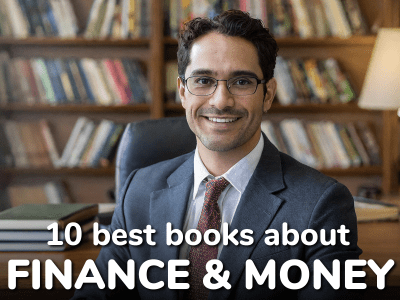

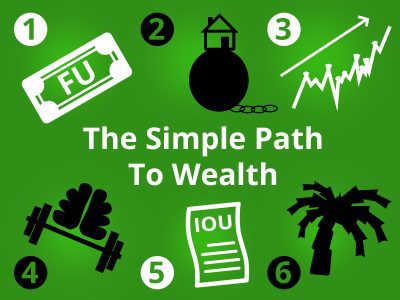


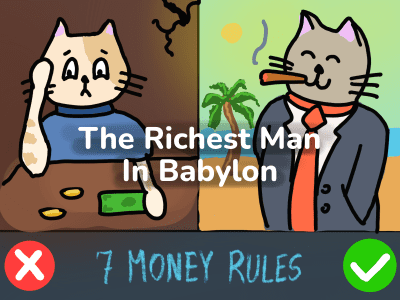


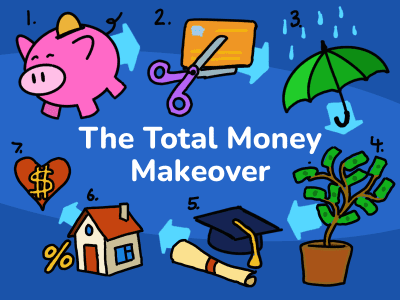



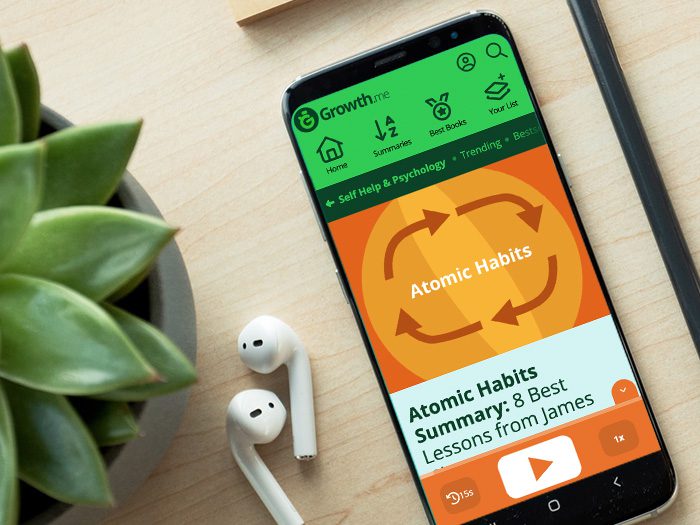
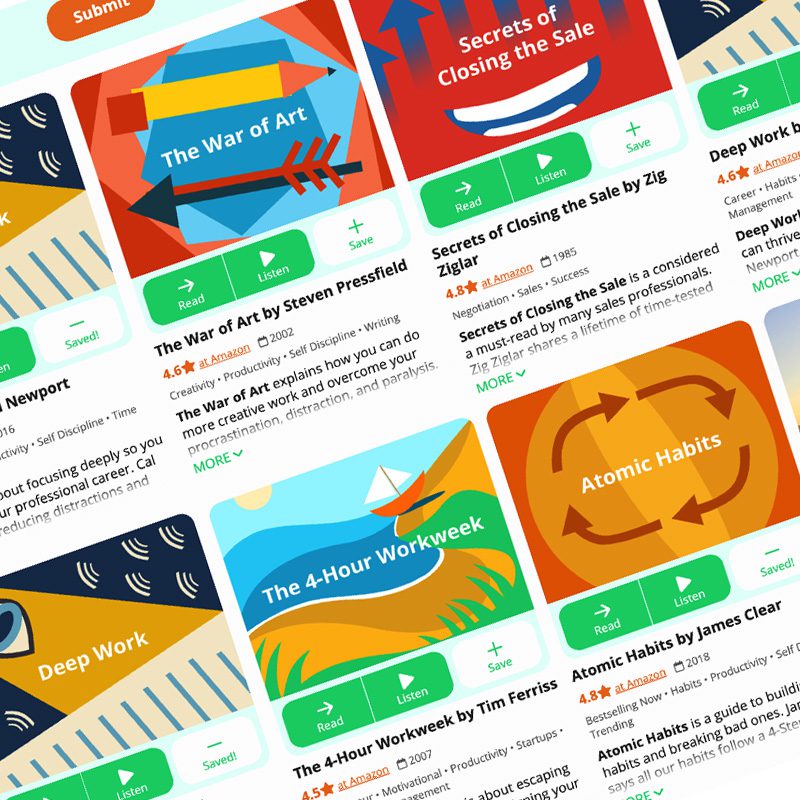
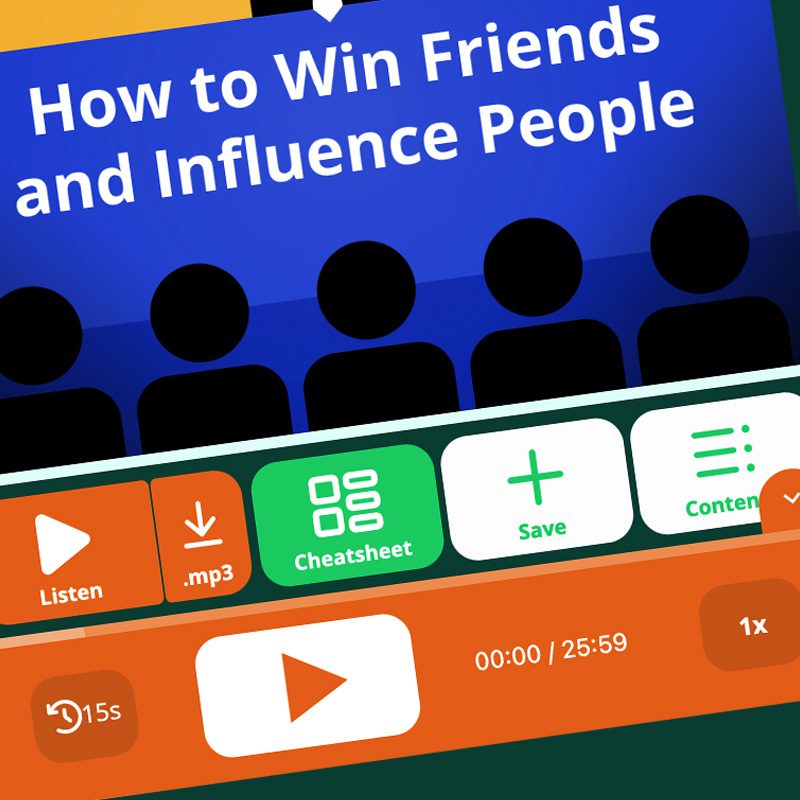
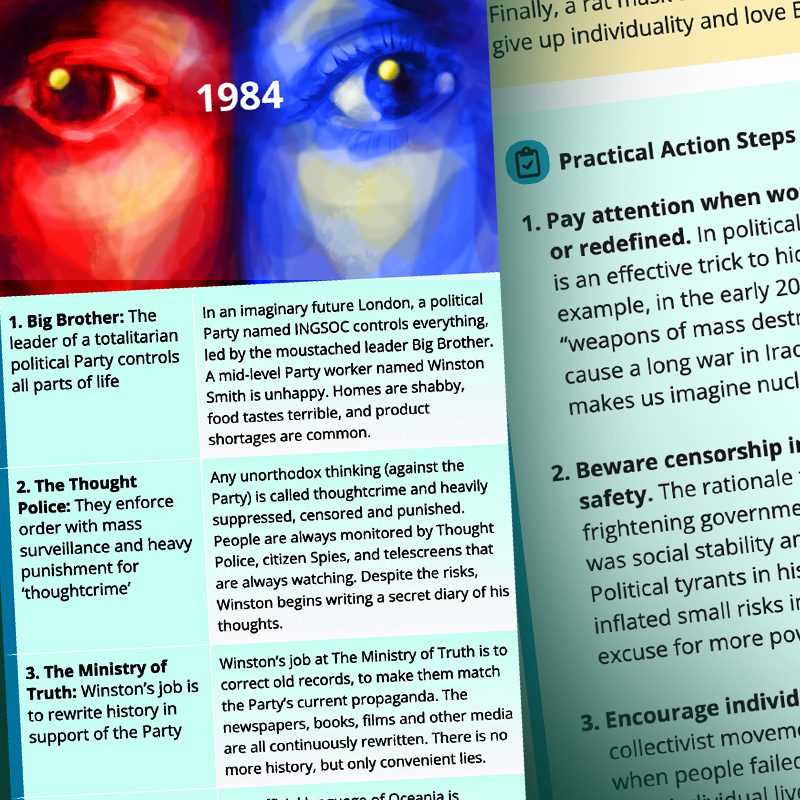


Community Notes